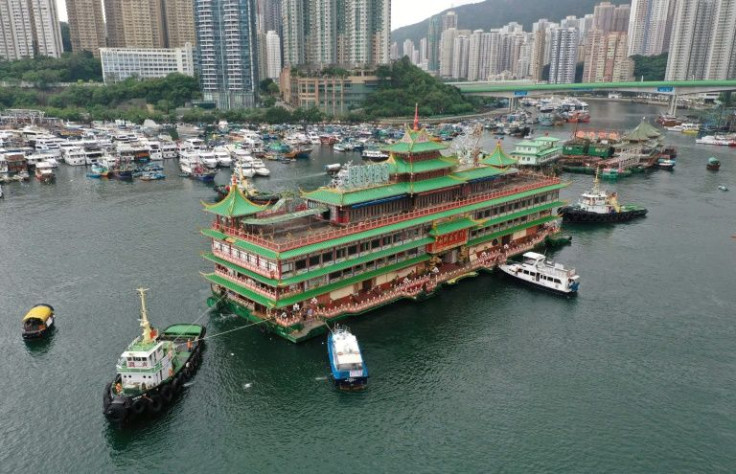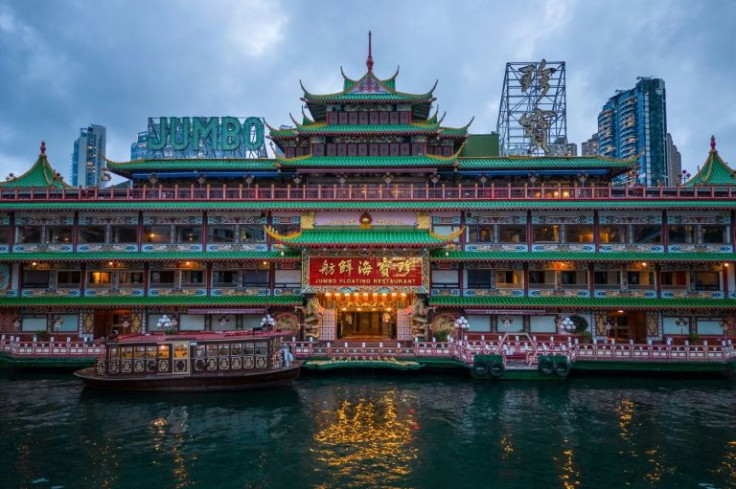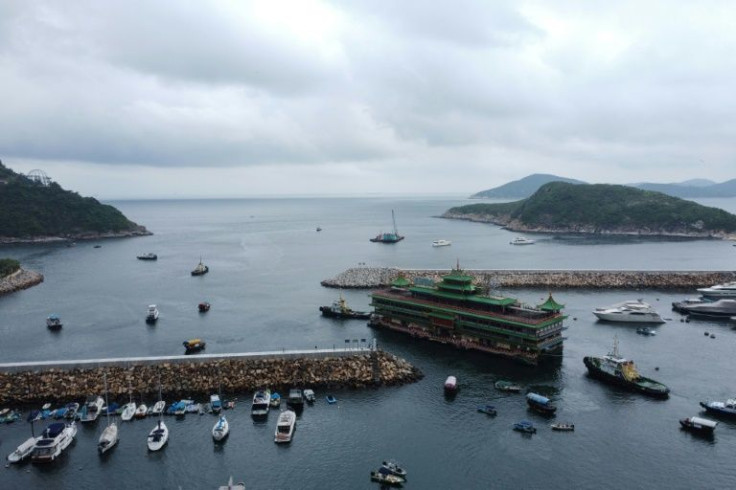Mystery Deepens Over Fate Of Hong Kong's Jumbo Floating Restaurant
Mystery over the fate of Hong Kong's Jumbo Floating Restaurant deepened Friday after its owner stirred confusion over whether the financially struggling tourist attraction had actually sunk while being towed away from the city last week.
On Monday Aberdeen Restaurant Enterprises released a statement saying the vessel had capsized on Sunday near the Paracel Islands in the South China Sea after it "encountered adverse conditions" and began to take on water.
"The water depth at the scene is over 1,000 metres, making it extremely difficult to carry out salvage works," it added.

On Thursday night, Hong Kong's Marine Department put out a statement saying it had only learnt of the incident from media reports, and had immediately requested a report from the company.
The department said the report was delivered on Thursday, saying the restaurant had capsized but that "at present, both Jumbo and the tugboat are still in the waters off Xisha islands," using the Chinese name for the Paracels.
Hours later an AFP journalist was contacted by a spokesman representing the restaurant who said the company had always used the word "capsized" not "sank".
Asked directly if the boat had sunk, he said again the statement had said "capsized", and did not explain why it had referred to the depth of the water when mentioning salvage.

The South China Morning Post reported a similar conversation with a spokeswoman for the company, in which they insisted the boat had "capsized", not "sank", but refused to clarify whether it was still afloat.
The newspaper said it had been told by the Marine Department that the company might have breached local regulations if it had not notified the authorities of a sinking incident within 24 hours.
Widespread reporting in both local and international media at the beginning of the week that Jumbo had sunk was not contradicted by the company.
AFP has requested a formal statement from Aberdeen Restaurant Enterprises on the status of Jumbo, as well as a detailed explanation of what happened.

The company previously said marine engineers had been hired to inspect the floating restaurant and install hoardings on the vessel before the trip, and that "all relevant approvals" had been obtained.
The tourist attraction closed in March 2020, citing the Covid-19 pandemic as the final straw after almost a decade of financial woes.
Operator Melco International Development said last month the business had not been profitable since 2013 and cumulative losses had exceeded HK$100 million ($12.7 million).
It was still costing millions in maintenance fees every year and around a dozen businesses and organisations had declined an invitation to take it over at no charge, Melco added.
It announced last month that ahead of its licence expiration in June, Jumbo would leave Hong Kong and await a new operator at an undisclosed location.
The restaurant set off shortly before noon last Tuesday from the southern Hong Kong Island typhoon shelter where it had sat for nearly half a century.
Opened in 1976 by the late casino tycoon Stanley Ho, in its glory days it embodied the height of luxury, reportedly costing more than HK$30 million to build.
Designed like a Chinese imperial palace and once considered a must-see landmark, the restaurant drew visitors from Queen Elizabeth II to Tom Cruise.
It also featured in several films -- including Steven Soderbergh's "Contagion", about a deadly global pandemic.
© Copyright AFP 2024. All rights reserved.




















